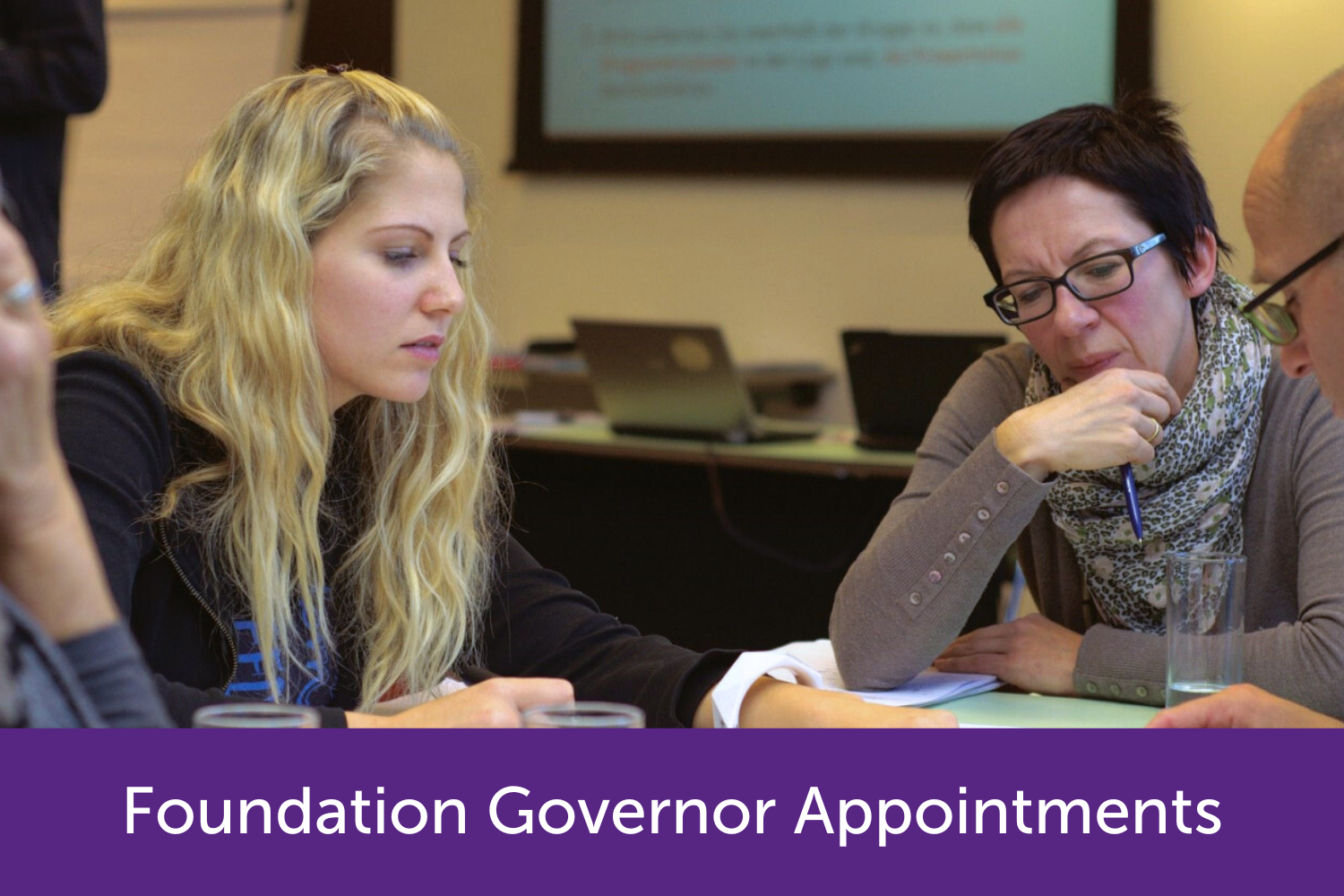
An introduction to the role of Foundation Governors in CofE schools, their responsibilities, appointment process, and guidance for both appointed and ex officio governors.

Information and forms for the appointment and reappointment of Foundation Governors in Church of England schools, including processes, deadlines, and supporting guidance.

Guidance on appointing and reappointing foundation trustees, directors, and local governors for Church of England academy trusts in the Diocese of Hereford.
Governance
The Board of Education is committed to helping schools strengthen their effectiveness and distinctiveness as Church of England Schools and academies. Governors, trustees, headteachers and school leadership teams play a central role in securing high standards and ensuring every young person within a school can enjoy ‘life in all its fullness’.
Whilst the governing body's role is mainly strategic, a strong, well-led governing body, supportive of the school, its staff and its vision, makes an essential contribution to the school’s well-being and effectiveness. Working closely with governors, trustees and senior colleagues, it is the headteacher’s job to create a shared vision and plan that inspires pupils, staff and the whole school community to give and achieve their best. Headteachers and principals are both the spiritual and academic leaders of their schools or academies.
The Governance of Church of England Schools
Church Schools were established in a tradition of Christian commitment to education to serve local communities or parishes.
All maintained, local authority-led church schools are governed under Instruments of Government, operating since 1 September 2003, containing “an ethos statement” adopted by the governors to encapsulate the school's religious character and purpose. It represents a modern interpretation of the school’s original Trust Deed, the legal document that founded it.
The Memorandum of Understanding between the DfE and the National Society provides the legal framework for the work of the DBE and its schools.